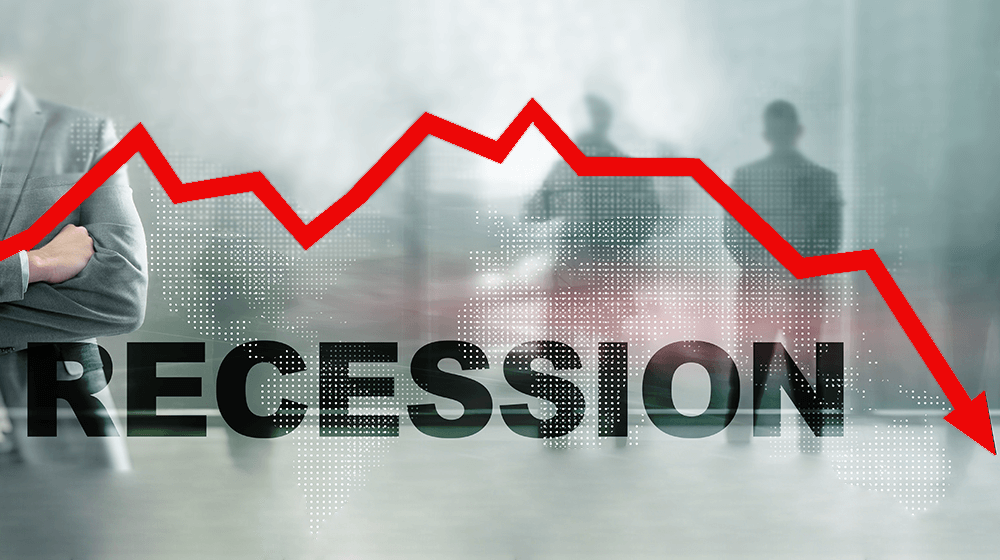What Is a Recession?
A recession is a period during which economic growth slows down or contracts. It is typically marked by a fall in GDP, a reduction in consumer spending, rising unemployment, and a slowdown in industrial production. The National Bureau of Economic Research (NBER), the institution that officially declares recessions in the U.S., considers a range of indicators, including real GDP, income, employment, industrial production, and wholesale-retail sales.
Though a recession can feel like an economic downturn, it’s important to note that the length and severity of recessions can vary. Some recessions last only a few months, while others can extend for years, leading to prolonged periods of slow economic growth.
Causes of Recession
Recessions can occur due to a variety of factors, either internal or external to an economy. The key causes include:
1. Demand Shock
A demand shock occurs when there is a sudden and unexpected decrease in consumer demand. When people stop spending money, businesses experience a drop in sales, leading to layoffs, reduced investment, and decreased output. This can result from a sudden increase in prices (inflation), economic uncertainty, or other factors that decrease consumer confidence and spending.
2. Supply Shock
A supply shock happens when there is a disruption in the supply of goods and services. This can occur due to natural disasters, geopolitical events, or a significant increase in the cost of raw materials (such as oil). When the supply of goods and services is reduced, businesses may struggle to meet demand, causing higher prices and lower overall economic output.
3. High Inflation
Inflation refers to the rising prices of goods and services over time. While moderate inflation is common in growing economies, excessively high inflation can erode purchasing power, making goods and services more expensive for consumers. This can lead to reduced consumer spending, as people may prioritize essentials over discretionary spending. Central banks often raise interest rates to combat high inflation, which can further slow down economic activity and trigger a recession.
4. High Levels of Debt
Excessive levels of debt, whether in households, businesses, or governments, can contribute to a recession. When debt levels become unsustainable, borrowers may cut back on spending to pay down debt, leading to a reduction in economic activity. Additionally, businesses facing high debt may scale back investments, which can hinder economic growth.
5. Financial Crisis
Financial crises, such as the collapse of a major financial institution or the bursting of a speculative asset bubble, can lead to a recession. A collapse in financial markets reduces the availability of credit and creates widespread panic. When people lose confidence in the stability of financial institutions, they may reduce spending and investments, leading to a downturn.
6. Global Events
Recessions can also be triggered by global events such as pandemics, trade wars, or geopolitical tensions. For instance, the COVID-19 pandemic caused an unprecedented global romanbusiness .com/ by disrupting supply chains, forcing businesses to close, and reducing consumer demand across many sectors.
Impacts of Recession on the Economy
A recession affects various aspects of the economy, from businesses to workers. The most common effects include:
1. Unemployment
One of the most visible impacts of a recession is an increase in unemployment. As businesses experience lower demand for goods and services, they may cut back on hiring or even lay off workers. In severe recessions, unemployment can rise sharply, and job seekers may struggle to find new employment.
2. Reduced Consumer Spending
As a result of job losses, pay cuts, and increased uncertainty, consumers tend to cut back on spending during a recession. This reduction in consumer spending exacerbates the slowdown in economic activity, as businesses see reduced sales and may need to further cut back on production or staff.
3. Decline in Business Investment
During a recession, businesses tend to become more cautious with their investments. They may delay expanding their operations or investing in new projects due to the uncertain economic outlook. This slowdown in business investment further dampens economic growth, as fewer goods and services are produced and sold.
4. Falling Stock Market
Recessions often lead to significant declines in the stock market. As investors react to the economic downturn, stock prices can fall, causing individuals and institutions to lose wealth. A decline in stock market performance can reduce consumer confidence, as people see the value of their investments decrease.
5. Falling Property Values
In many recessions, property values also decline. As demand for homes and commercial properties falls, property prices can drop, leading to a loss in wealth for homeowners and investors. Lower property values can also make it more difficult for homeowners to sell their properties or refinance mortgages.
6. Government Revenue Declines
During a recession, government revenues typically decrease as businesses and individuals earn less and pay fewer taxes. This can lead to budget shortfalls, forcing governments to cut back on public services or increase borrowing. In some cases, governments may introduce stimulus measures to support the economy, such as infrastructure spending or direct financial assistance to households.
How Businesses Can Prepare for a Recession
While recessions are challenging, businesses can take steps to prepare and weather the storm:
1. Diversify Revenue Streams
Businesses that rely on a single product, service, or market are particularly vulnerable to recessions. By diversifying revenue streams—whether through offering new products, entering new markets, or expanding services—companies can reduce their reliance on one source of income and improve their resilience.
2. Control Costs
During a recession, managing costs becomes crucial. Businesses should evaluate their expenses and look for areas to cut back without compromising quality. This might include renegotiating contracts, reducing overhead, or implementing more efficient processes.
3. Build Cash Reserves
Having a financial cushion can help businesses survive periods of economic uncertainty. By building cash reserves during times of growth, businesses can ensure they have the resources to continue operating even when revenue drops.
4. Focus on Customer Retention
Retaining existing customers can be more cost-effective than acquiring new ones during a recession. Businesses should focus on providing excellent customer service, offering loyalty programs, and maintaining strong relationships with their customer base.
5. Invest in Technology
Technology can help businesses streamline operations, improve efficiency, and reduce costs. Businesses that embrace digital tools for communication, marketing, and sales can adapt more easily to changes in consumer behavior and remain competitive during tough times.
How Individuals Can Prepare for a Recession
Recessions can also have a significant impact on individuals. Here are a few tips to help people prepare:
-
Build an Emergency Fund: Having savings set aside for unexpected expenses can provide a buffer in case of job loss or financial hardship.
-
Cut Back on Non-Essential Spending: Limiting discretionary spending during uncertain times can help individuals save more and reduce financial stress.
-
Invest in Skill Development: Gaining new skills or certifications can improve employability and make it easier to find a job if layoffs occur.
-
Pay Down Debt: Reducing high-interest debt can alleviate financial pressure and improve financial security during a recession.
Conclusion
A recession is an inevitable part of the economic cycle, but it can have significant consequences for individuals, businesses, and entire economies. By understanding its causes and potential impacts, businesses and individuals can take proactive steps to mitigate risks and prepare for the downturn. Whether it’s through diversifying revenue streams, managing costs, or building financial reserves, planning for a recession can help minimize the negative effects and ensure a quicker recovery when the economy begins to grow again.





